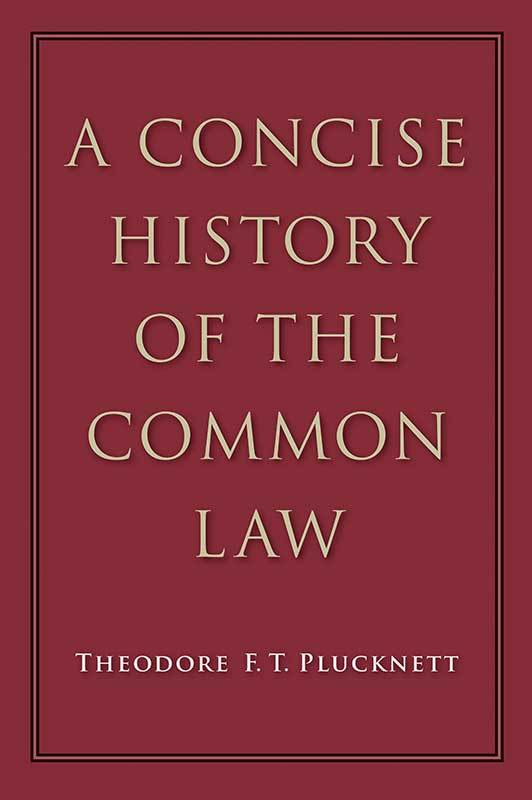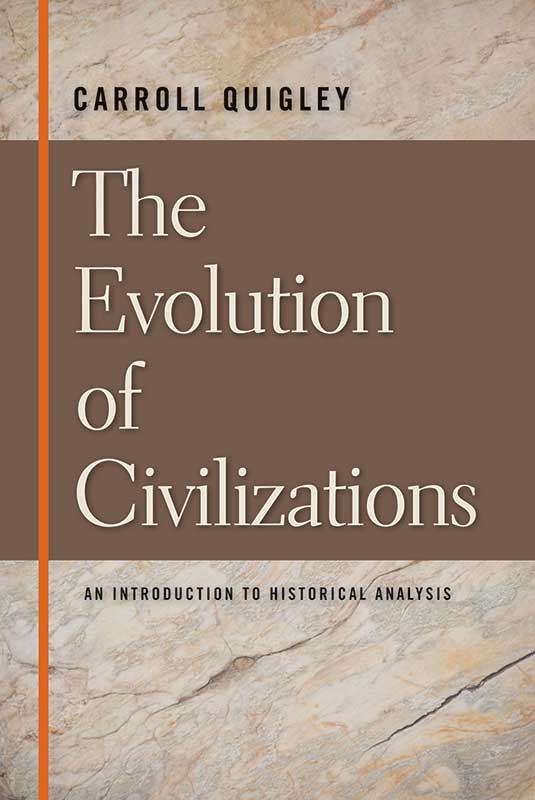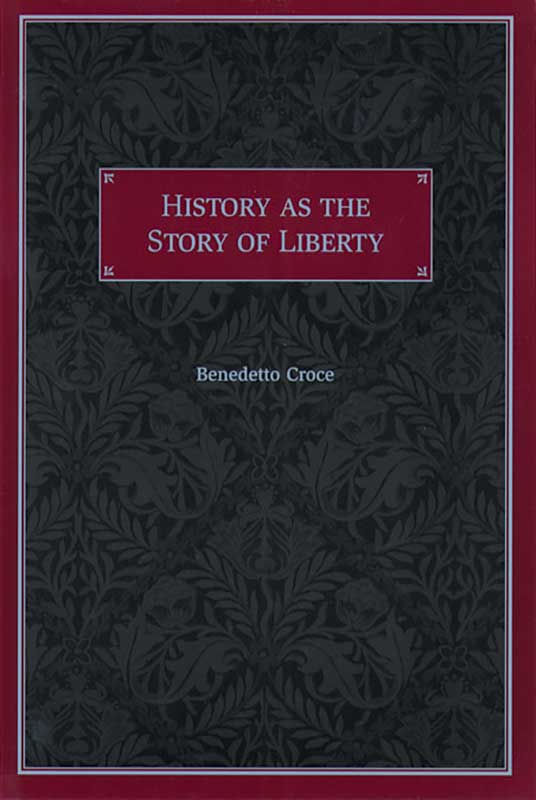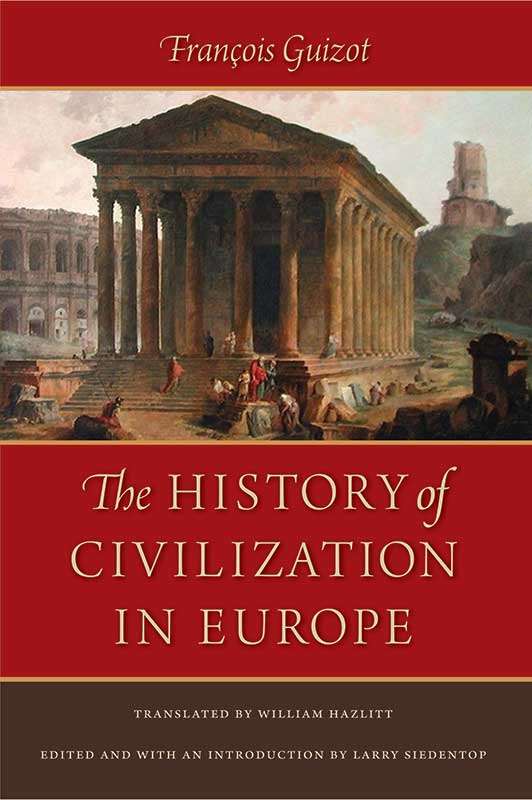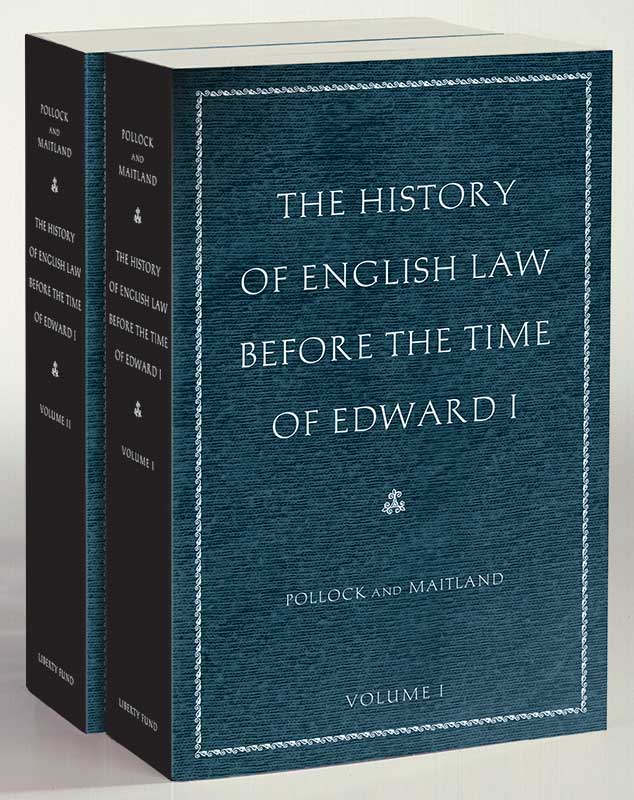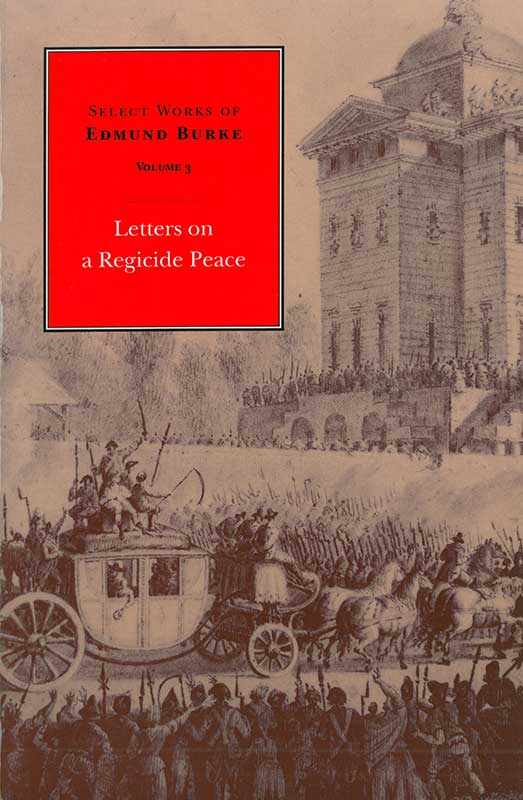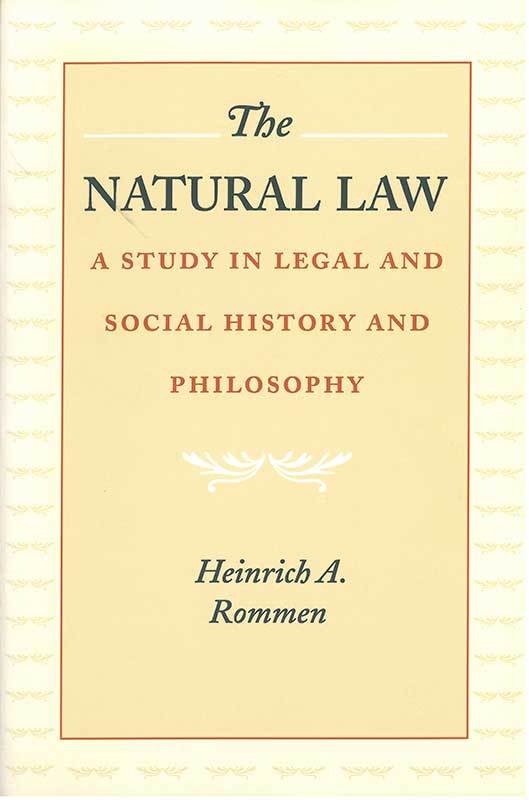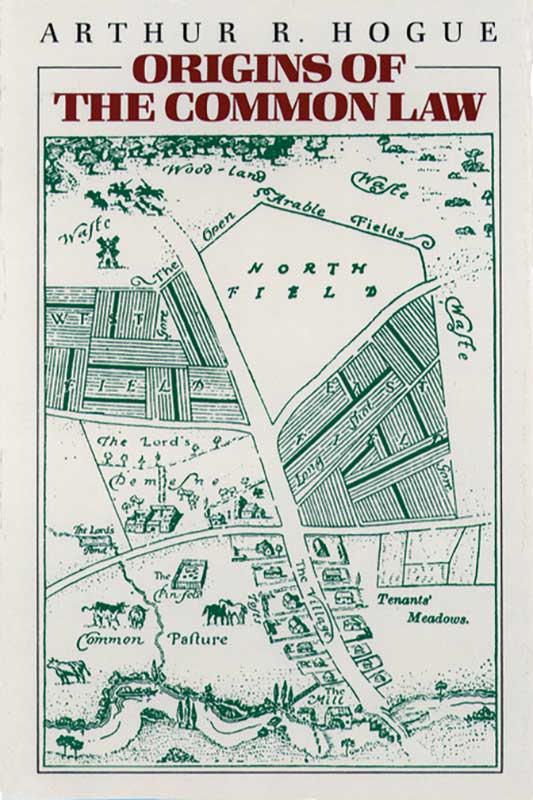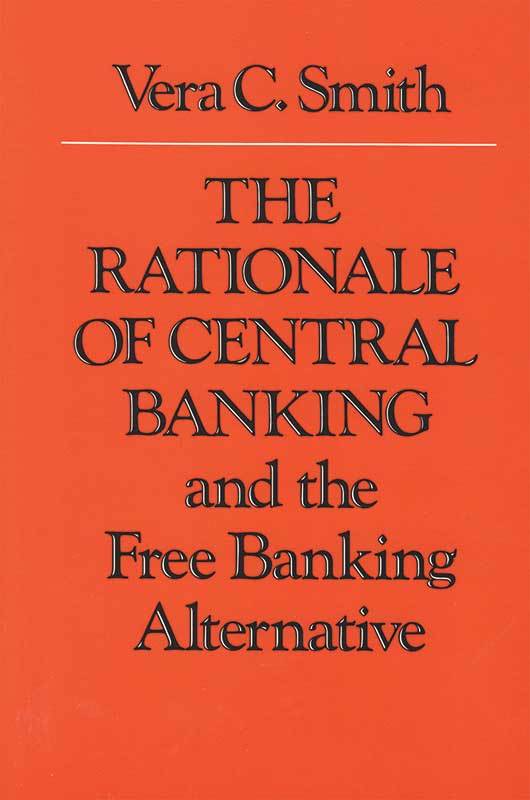History
-
A Concise History of the Common Law
by Theodore F. T. Plucknett
/ Learn MoreAs always during its long history, English common law, upon which American law is based, has had to defend itself against the challenge of civil law?s clarity and traditions. That challenge to our common-law heritage remains today. To that end, Liberty Fund now makes available a clear and candid discussion of common law. A Concise History of the Common Law…
-
The Evolution of Civilizations
by Carroll Quigley
/ Learn MoreCarroll Quigley was a legendary teacher at the Georgetown School of Foreign Service. His course on the history of civilization was extraordinary in its scope and in its impact on students. Like the course, The Evolution of Civilizations is a comprehensive and perceptive look at the factors behind the rise and fall of civilizations. Quigley examines the application of scientific…
-
Further Reflections on the Revolution in France
by Edmund Burke
/ Learn MoreIn his famous Reflections on the Revolution in France (1790), Edmund Burke excoriated French revolutionary leaders for recklessly destroying France’s venerable institutions and way of life. But his war against the French intelligentsia did not end there, and Burke continued to take pen in hand against the Jacobins until his death in 1797. This collection brings together for the first…
-
History as the Story of Liberty
by Benedetto Croce
/ Learn MoreBenedetto Croce (1866–1952), who is perhaps best known as the author in 1902 of Aesthetics, wrote History as the Story of Liberty in 1938, when the Western world had succumbed to the notion that history is a creature of blind force. A reviewer at the time noted the importance of Croce’s belief that “the central trend in the evolution of…
-
The History of Civilization in Europe
by François Guizot
/ Learn MoreOriginally given as a series of lectures at the Sorbonne, François Guizot’s History of Civilization in Europe was published to great acclaim in 1828 and is now regarded as a classic in modern historical research. History was particularly influential on Karl Marx, John Stuart Mill, and Alexis de Tocqueville. Tocqueville, in fact, requested that a copy of History be sent…
-
The History of England
by David Hume
/ Learn MoreDavid Hume’s enduring reputation as the first modern thinker to develop a systematically naturalistic philosophy tends to obscure the fact that he was more famous among his contemporaries as a historian. Covering almost 1,800 years, The History of England from the Invasion of Julius Caesar to the Revolution in 1688 was the work that established Hume’s reputation in his own…
-
The History of English Law before the Time of Edward I
by Sir Frederick Pollock and Frederic William Maitland
/ Learn MoreFirst published in 1895, Sir Frederick Pollock and Frederic William Maitland’s legal classic The History of English Law before the Time of Edward I expanded the work of Sir Edward Coke and William Blackstone by exploring the origins of key aspects of English common law and society and with them the development of individual rights as these were gradually carved…
-
John Randolph of Roanoke
by Russell Kirk
/ Learn MoreJohn Randolph of Roanoke is unique in American political history. For most of his public career Randolph was a leader of the opposition—to both Jeffersonians and Federalists. Only twenty-six when first elected to Congress in 1799, he readily became the most forceful figure at the Capitol. He was, writes Russell Kirk, “devoted to state rights, the agricultural interest, economy in…
-
Select Works of Edmund Burke: Letters on a Regicide Peace
by Edmund Burke
/ Learn MoreThis famed Payne edition of Select Works of Edmund Burke is universally revered by students of English history and political thought. Volume 3 presents Burke’s Four Letters on the Proposals for Peace with the Regicide Directory of France—generally styled Letters on a Regicide Peace (1795–1796). The Letters, Payne believed, deserve to “rank even before [Burke’s] Reflections, and to be called…
-
The Natural Law
by Heinrich A. Rommen
/ Learn MoreOriginally published in German in 1936, The Natural Law is the first work to clarify the differences between traditional natural law as represented in the writings of Cicero, Aquinas, and Hooker and the revolutionary doctrines of natural rights espoused by Hobbes, Locke, and Rousseau. Heinrich A. Rommen (1897–1967) taught in Germany and England before concluding his distinguished scholarly career at…
-
Origins of the Common Law
by Arthur R. Hogue
/ Learn MoreThis introductory analysis of the origin and early development of the English common law provides an excellent grounding for the beginning student as well as the experienced scholar of legal history. Arthur R. Hogue (1906–1986) was Professor of History at Indiana University.
-
The Rationale of Central Banking
by Vera C. Smith
/ Learn MoreThe Rationale of Central Banking was first published in England in 1936. Vera Smith spent her professional career in a variety of research positions. She wrote articles and books on money, banking, economic development, and the labor market and translated into English books by Wilhelm Röpke, Oskar Morgenstern, and Fritz Machlup. This book provides a scholarly review and judicious assessments…
35% OFF YOUR ENTIRE BOOK PURCHASE
With promo code:
SUMMER2025
Expires July 31, 2025

